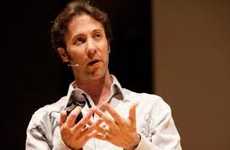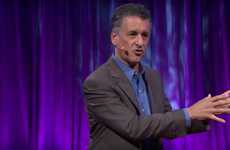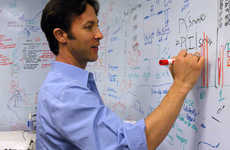
Need Inspiration?
Get inspired by 4,000+ keynote speaker videos & our founder, a top keynote speaker on innovation.
Dean Buonomano's Brain Talk Investigates Our Perception of Time
Joey Haar — June 13, 2017 — Keynote Trends
References: youtube & talksat.withgoogle
To open his brain talk, Dean Buonomano intentionally commits what might otherwise be the cardinal sin of public speaking: an awkward silence. Fortunately, the UCLA neuroscientist employs that faux pas for a purpose; his lengthy silence is a good indicator of how our brains are able to perceive the passing of time. After all, awkward silences wouldn't make listeners cringe if those listeners didn't realize there had been a pause at all.
But despite our brains' innate ability to process the passing of time, people generally have a nebulous conception of what time actually is. "Time" is among the most commonly used nouns in the English language, and yet it gets used in many different ways, and some of the great minds of generations gone by have failed to give it a thorough definition. Time can be a concept for use in science, it can be simple calendar measurements, or it can be a matter of perception.
Neuroscientist that he is, Buonomano is most concerned with the latter concept. He defines the human brain as a time machine, with many of the functions that are typically associated with the sci-fi vessel (such as generating the feeling of the passage of time or allowing us to mentally place ourselves in the past or the future.)
But despite our brains' innate ability to process the passing of time, people generally have a nebulous conception of what time actually is. "Time" is among the most commonly used nouns in the English language, and yet it gets used in many different ways, and some of the great minds of generations gone by have failed to give it a thorough definition. Time can be a concept for use in science, it can be simple calendar measurements, or it can be a matter of perception.
Neuroscientist that he is, Buonomano is most concerned with the latter concept. He defines the human brain as a time machine, with many of the functions that are typically associated with the sci-fi vessel (such as generating the feeling of the passage of time or allowing us to mentally place ourselves in the past or the future.)
5.3
Score
Popularity
Activity
Freshness
















